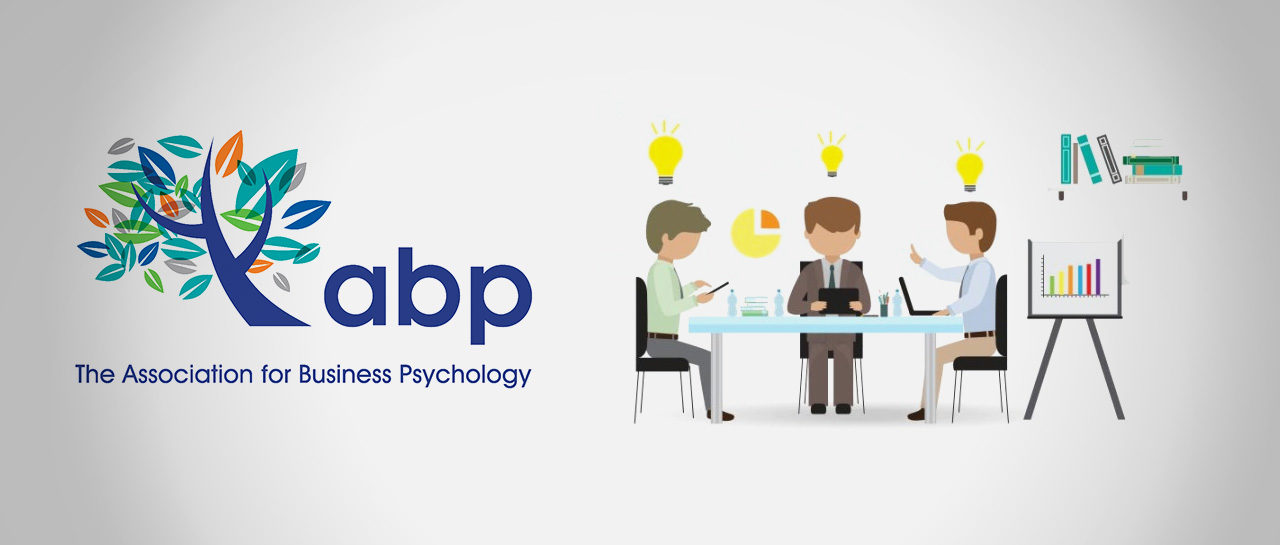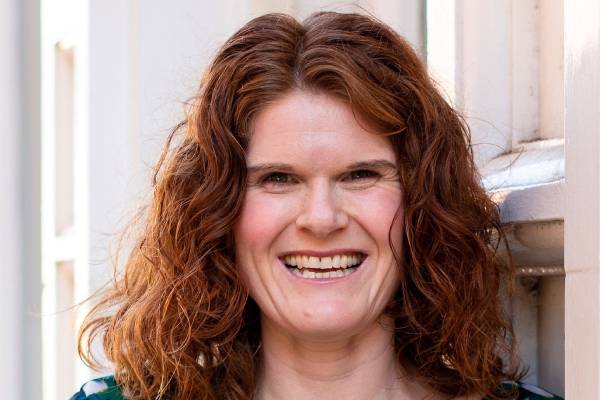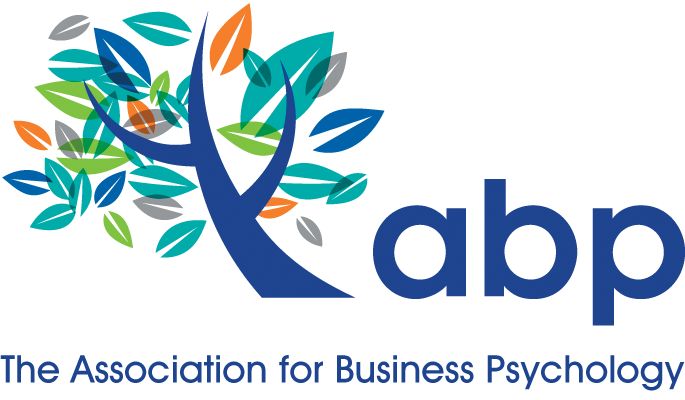Authored by Certified Business Psychologist Laura Howard. Certified Business Psychologist, Laura Howard, reflects on the webinar she recently delivered to ABP members. Below she outlines the main findings of her published research uncovering systematic barriers women face when being authentic as leaders. Importantly, she gives…

The ABP excitedly announced back in November that Alex Forsythe would be steppi ng up as the new Chair of the Association. Alex has been a member of the board since 2016 where she helped to design our members Certification pathway and as well as the ABP’s standards for university accreditation. Alex is also a Professor of Applied Psychology at the University of Wolverhampton, is a Chartered Psychologist, Psychometrician, BPS test specialist and runs her own consultancy business!
ng up as the new Chair of the Association. Alex has been a member of the board since 2016 where she helped to design our members Certification pathway and as well as the ABP’s standards for university accreditation. Alex is also a Professor of Applied Psychology at the University of Wolverhampton, is a Chartered Psychologist, Psychometrician, BPS test specialist and runs her own consultancy business!
In this latest NexGen blog our student NexGen Ambassadors, Harrison Wood and Liz Mulhall ask Alex about her career, the pandemic and her new book “The psychology students career survival guide”.
- How would you best describe the value Business Psychologists bring, to someone who isn’t aware of what Business Psychology is?
Business psychology is an applied science that investigates how to make people and organisations more effective. It uses social scientific research methods to study people, workplaces and organisations to better align their multiple, and sometimes competing needs. Business psychologists job titles and employment environments are varied. They may work as employment consultants in private firms, testing and assessment, human factors consultants, academics and researchers in universities, counsellors, coaches, marketing and communications. Business psychologists are often both specialists and generalists, applying their skills and knowledge to solving problems in diverse and ambiguous environments. Broad practice areas in the field are identified below. These include, but are not limited to selection and assessment, learning and development, human motivation and workplace well-being, behavioural science, strategy and organisational effectiveness.
What sets Business Psychologists apart from other disciplines is their business acumen; the knowledge, skills and experience of the business situation, its market orientation, strategic perspective and financial standing. This business acumen, combined with the diversity of specialisms that practitioners operate in, gives the field a particular industry-facing advantage. Business Psychology has a reciprocal relationship with business, drawing insights from those with experience of what works at work to enable psychological research to be applied pragmatically in ways that are appropriate to the situation. It also allows cross-fertilisation of expertise: from business into psychology, and of academic knowledge and rigour from psychology into business.
- Reflecting on your own career, what have been your biggest challenges and successes?
Challenges: Like many women, the greatest career challenges I have faced have been juggling the personal and the professional. I realise that many men will argue that they face similar challenges but in my experience both personally and as a line manager and leader, it is still the women who end up doing the majority of the heavy lifting of the family. For me, I feel the challenge of work-family was compounded because having moved to England from Ireland, I had no extended family to help me care for my children. This is a scenario that parents who have moved to the UK face on a daily basis, and one area that employers could do more to address through initiatives such as flexible and homeworking. When I had my third child my husband and I swapped roles and he stayed home to bring up the baby whilst I went back to the office. Once I got over the initial hand wringing and guilt, I found our new reversed roles wonderfully liberating. He also loved the opportunity to spend the formative years at home with our little boy and all of our relationships are the stronger for it.
Successes: For me, too many senior leaders spend a lot of time worrying about how they are viewed and how to measure their personal impact and success. What I am most proud in my career, what I consider to be my greatest successes are the times in my life when I have had a positive impact on the careers of other people: my students, my PhD students, my peers, my staff, my friends and my children. I get such a buzz from coaching people to see themselves in new ways and to achieve things they never really believed they could do. When other people shine, I shine.
- As we begin to recover from the pandemic it is clear that the workplace has changed and the need for business psychologists has never been greater. What advice would you give to students and early practitioners who are entering the workplace?
Before the pandemic I used to spend something like three hours a day on packed and frankly filthy trains that appeared to have no real commitment to either getting people to work on time, or indeed ensuring they got close to home. Myself and my staff were in shared offices, with limited privacy and limited opportunities for either meaningful group work engagement or deep focused thinking. So, when Boris Johnson stated that remote working would not be the new normal, I felt he was completely out of touch with what the actual working lives for many commuters is. I don’t want to go back to the way work was like before the pandemic, or any kind of fuzzy ‘new normal’. Normal was not working for most of us, so my hope is that more courageous psychologists will call out the flawed logic behind some of the systems that wrap up in expensive useless offices and on long and stressful commutes.
We need a connected strategy between good mental health, wellbeing and our working lives. That strategy needs a new kind of leadership. So, my advice is to get involved in shaping a better future for your generation through research, lobbying and your professional practice. The future of work will be shaped by business psychologists who are prepared to put in the hard yards into gathering robust data that demonstrates the impact of homeworking on productivity and wellbeing. Where homeworking is impossible or undesirable, remote working can still be made effective through the widespread use of high-quality hot desking agreements in local areas. I could for example, work for a university in London, but be able to access hot-desk space in my local village. This would have the added benefit of shifting the balance of work opportunity spends (e.g., coffee, sandwiches, books, stationary, etc.,) out of major cities and into our local communities. This will revitalise everyone’s contribution to the economy and democratise work opportunities nationally. It might also force train operators to up their game and provide clean, safe and reliable transport for those days when we need to be in the office for high value activities such as team building.
- There are several areas of business psychology that one can build real expertise in and begin to develop a career within. How did you know what area you wanted to work in and how did you refine your options?
The short, and possibly unhelpful answer is that I never did (refine my options) and the most interesting people I know, still have no idea what they want to do when they grow up. I mean I have always had a sense that I wanted to make people’s lives better, but on the one time I did have advice to refine my options I am really glad I ignored that advice. When I was an early career academic, I won a lecturer into industry award which enabled me to travel around Europe working with architects on the design of healing environments. My excitement was quickly deflated when a very senior academic pointed out to me that I seemed to be interested in doing things that no self-respecting academic would want to do: “why do you want to do that? it will never help your career”. Had I taken that advice, the earth-shattering stupidity of his statement would have paled in comparison to my own poor decision making. But deep down I knew that on that day my ambitions just did not match his story, but on a different day with someone else my story might just match.
People love to categorise, and to place others into boxes and career silos. So, take every opportunity that life offers you and never fall into someone else’s mind trap of who and what you stand for, or what you should or should not do. Try life out and test what works for you and never be afraid to be a quitter. Life is going to shift in so many different directions, what works for you now, might not serve you in 10 years and you have no way of knowing that right now. To quote Soren Kierkegaard, – ‘Life must be lived forwards, but it can only be understood backwards’ so experience good and bad is your friend, it will always serve you.
Hold that value close and remember to apply it to those around you. Always remember that as a psychologist your superpower is your critical intellect, so never be afraid to challenge established ways of thinking and working. When someone disagrees or criticises what you say, do not be discouraged. Criticism is every bit as important to your professional and personal growth as is praise and encouragement.
- With the need for business psychologists increasing, how do you think the ABP can continue to bridge the gap between academia and business?
The way you need to think to be a good academic / scientist is qualitatively different from the way you need to think to run a successful business. On the university side, academics spend long periods of time in isolated reflection trying to unpick challenging questions with far reaching consequences. We are always questioning what we and others do, double checking what we think, reflecting on our assumptions and constantly trying to anticipate and measure the relationships between phenomena. Academics are also subjected to what can be the most cutting of peer review processes, and continual evaluations on teaching performance, citations of papers, grant income and scientific and professional impact. This teaches academics from an early stage in their careers to constantly doubt themselves and their work. Whilst this process may produce the most robust of science (and many argue that it does not) it certainly doesn’t develop people into individuals who can plan to hard deadlines, to respond quickly with pragmatic solutions, to accept that good is good enough, be good public communicators, or for that matter become rounded human beings.
This academic ingrained attitude doesn’t help create the much-needed symbiotic relationship that should exist between all areas of academia and business and to be honest, as we business psychologists know too well, change tends to follow the money. This has been most recently and successfully demonstrated through the pandemic where scientists have worked in partnership with entrepreneurial organisations to rapidly develop and distribute the Covid-19 vaccine. Vaccine developments aimed at addressing diseases in the non-working population tended not to move so quickly (I am thinking HPV and meningitis for children). Either way, my hope is that these recent successes will build curiosity in the business community about how they can leverage dynamic academic-industry partnerships that make a meaningful difference to our lives. However, for that to happen much more needs to take place at the university level to raise awareness and appreciation of what actually happens in universities, the functions we serve, the values we hold and what we can do to support business. As it currently stands experiences of university (outside of the academy) still tend to be a largely teaching related, an activity that only really accounts for only about 50% of what university staff actually do.
What I love about the Association for Business Psychology is that it helps bridge this gap by recognising that these issues exist, talking about them in meaningful ways and offering an inclusive environment for all. To me this philosophy challenges boundaries (real or perceived) by creating a safe space for learning and debate, for individualisation, for collaboration, for acknowledging what works well and for challenging the status quo.
- You have recently released a book aimed at psychology students. Can you tell us more about the book?
My book “The psychology students career survival guide” was largely written out of frustration at over a decade of experiencing university employability initiatives which, whilst well-meaning, were largely useless to the majority of graduates. In particular, students of psychology who did not want to go down the professional training routes seemed to have minimal support or direction. Given that something like 80% of psychology graduates do not go on to become a practicing psychologist that seemed to be a bit of an own goal to our discipline. The problem is employability was largely thrust upon psychology academic staff, who are brilliant at all things scientific and academic, but they know very little about other jobs, how to become employed or stay employed and thrive.
As I said in my previous answer to the question on personal successes the things that I am most passionate about relate to making a meaningful contribution to the careers of others. There was very little strategic information available to students to help them self-regulate in their careers, to thrive and even to survive their careers. I wanted to create something that would make that demonstrable difference to our students, to share something of my personal career and how ‘wonky donkey’ that had been and to make up for decades of tedious lectures (some probably delivered by me) by giving the topic a light touch, a student voice and most significantly giving people a giggle along the way.
I would also like to say, crazy as it seems, it takes a lot of courage to do something like this. We are not known for a light touch or a sense of humour. I spent hours agonising over its content and writing style, and if somehow, I would be judged as frivolous and possibly a bit dim. So, for that reason, of all the wonderful high impact papers, books and talks I have ever given, I think this is the piece of work that I am most proud of.
Alex Forsythe



